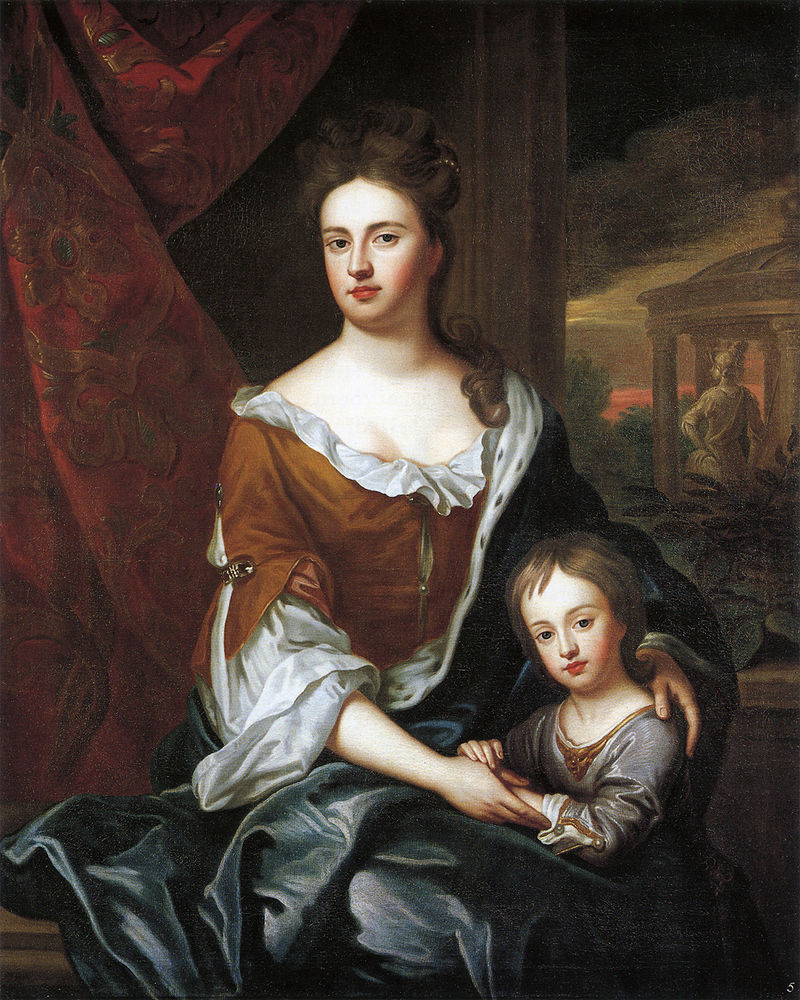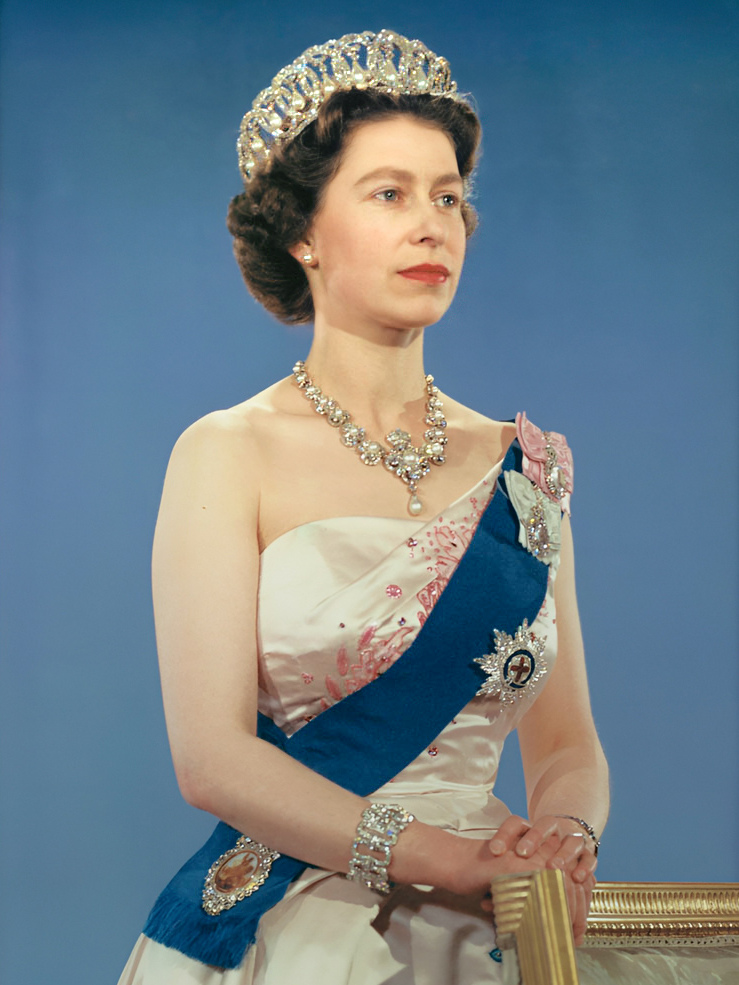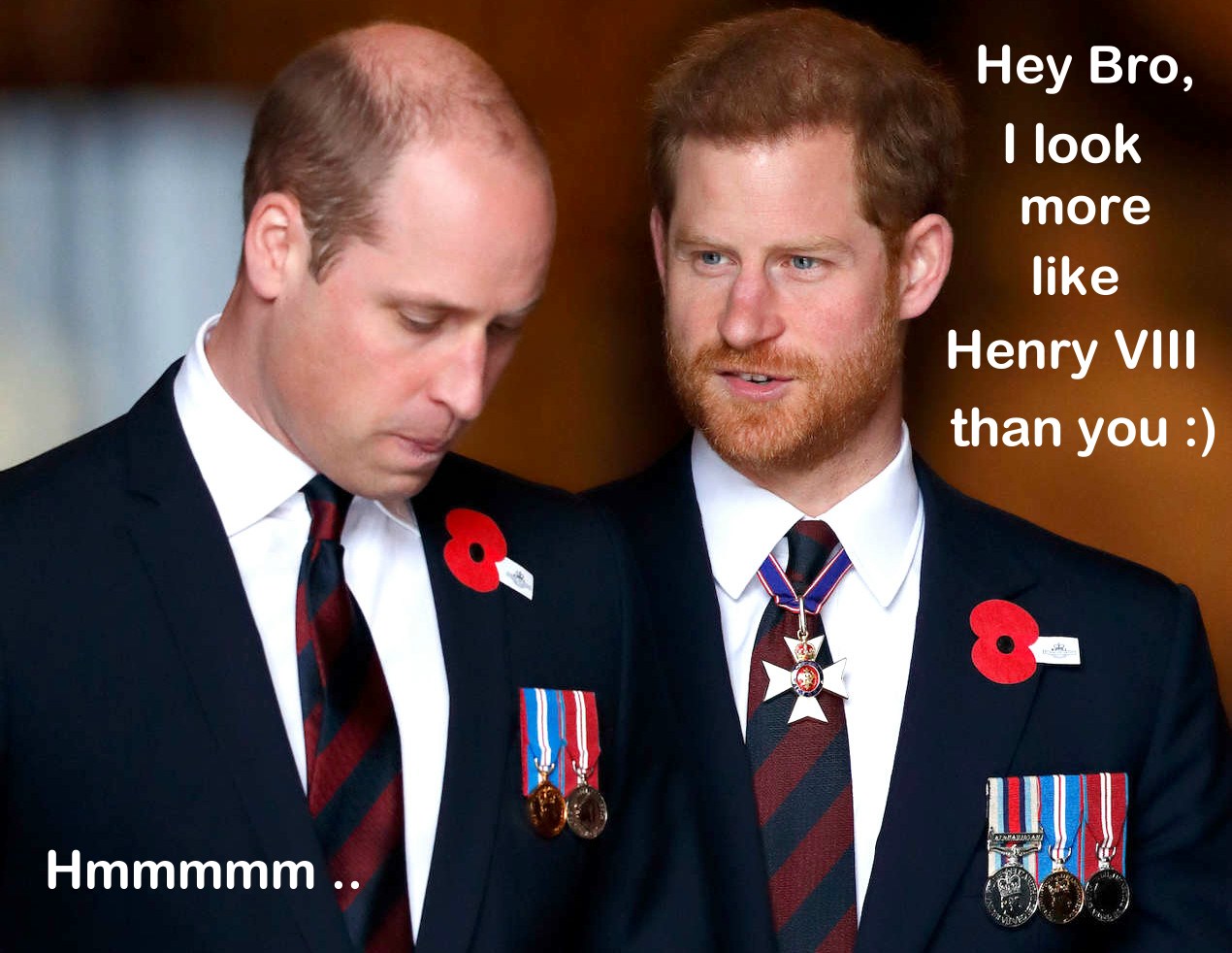|

Queen
Anne and Prince William
Anne was Queen of England, Scotland and Ireland from 8 March 1702. On 1 May 1707, under the Acts of Union, the kingdoms of England and Scotland united as a single sovereign state known as Great Britain. Anne continued to reign as Queen of Great Britain and Ireland until her death in 1714.
Anne was born in the reign of Charles II to his younger brother and heir presumptive, James, whose suspected Roman Catholicism was unpopular in England. On Charles's instructions, Anne and her elder sister Mary were raised as Anglicans. Mary married their Dutch Protestant cousin, William III of Orange, in 1677, and Anne married Prince George of Denmark in 1683. On Charles's death in 1685, James succeeded to the throne, but just three years later he was deposed in the Glorious Revolution of 1688. Mary and William became joint monarchs. Although the sisters had been close, disagreements over Anne's finances, status, and choice of acquaintances arose shortly after Mary's accession and they became estranged. William and Mary had no children. After Mary's death in 1694, William reigned alone until his own death in 1702, when Anne succeeded him.
During her reign, Anne favoured moderate Tory politicians, who were more likely to share her Anglican religious views than their opponents, the Whigs. The Whigs grew more powerful during the course of the War of the Spanish Succession, until 1710 when Anne dismissed many of them from office. Her close friendship with Sarah Churchill, Duchess of Marlborough, turned sour as the result of political differences. The Duchess took revenge with an unflattering description of the Queen in her memoirs, which was widely accepted by historians until Anne was reassessed in the late 20th century.
Anne was plagued by ill health throughout her life, and from her thirties she grew increasingly ill and obese. Despite 17 pregnancies, she died without surviving issue and was the last monarch of the House of Stuart. Under the Act of Settlement 1701, which excluded all Catholics, she was succeeded by her second cousin George I of the House of Hanover.
NAVAL ACTIONS
Queen Anne’s War was known as the War of Spanish Succession in Europe. It raged from 1702 to 1713. During the war, Great Britain, the Netherlands, and several German states fought against France and Spain. Just as with King William's War before it, border raids and fighting occurred between the French and English in North America. This would not be the last of the fighting between these two colonial powers.
The war consumed most of her reign. In America, the war became known as Queen Anne's War and consisted mainly of French privateering in the Atlantic and French and Indian raids on the frontier between England and France. The most notable of these raids occurred at Deerfield, Massachusetts on February 29, 1704. French and Native American forces raided the city, killing 56 including 9 women and 25 children. They captured 109, marching them north to Canada.
THE TAKING OF PORT ROYAL
In 1707, Massachusetts, Rhode Island, and New Hampshire made a failed attempted to take
Port
Royal, French Acadia - not the Jamaican port. However, a new attempt was made with a fleet from England led by Francis Nicholson and troops from New England. It arrived at Port Royal on October 12, 1710, and the city surrendered on October 13th. At this point, the name was changed to Annapolis and French Acadia became Nova Scotia.
In 1711, the British and New England forces attempted to conquest Quebec. However, numerous British transports and men were lost heading north on the St. Lawrence River causing Nicholson to stop the assault before it began. Nicholson was named Governor of Nova Scotia in 1712. As a side note, he would later be named the governor of South Carolina in 1720.
PIRATES
LINKS
Bellamy,
Samuel - Black
Sam (Captain)
Blackbeard
- English Teach and the Queen
Anne's Revenge
Bonny,
Anne - Pirate
Drake,
Sir Francis - Privateer
Edward
England - Irish pirate, Edward Seegar
Golden
Age of Piracy
Hawkins,
John - Privateer
Hornigold,
Benjamin - Privateer Captain
Jolly
Roger - Pirate flag
Kidd,
William - Captain Kidd, privateer/pirate
Morgan,
Henry - Privateer, Sir
Henry Governor of Jamaica
Pirates
- Piracy
and Privateers
Pirates
of the Caribbean, Disney's film
Port
Royal -
Rackham,
Jack - Calico Jack
Raleigh,
Sir Walter - Privateers
Read,
Mary - Pirate
Robert,
Bartholomew - Black
Bart, pirate
Robert
Louis Stevenson
Samuel
Bellamy - Black Sam, the pirate
Skull
and Crossbones - Pirate flag
Tortuga
-
Treasure
- Maps
to buried gold and jewels - Island
Vane,
Charles - Pirate captain
The King has personally asked parliament to add his siblings, Princess Anne and
Prince
Edward, to the list of people who can deputise for him for official duties.
There are currently five Counsellors of State, including Prince Andrew and
Prince
Harry, both of whom no longer carry out official royal duties.
ABOUT
THE ROYALS
The
King of England, is Charles
III; in
waiting. His
son, the former Duke
of Cambridge, Prince
William, is now the Prince of Wales, a King in waiting - as of the death
of Elizabeth II.
Their mother and grandmother, respectively, Queen
Elizabeth II, passed on 8th September 2022, at the age of 96.
The previous
King, Charles
II, ruled from 1630 until 1685, gave a Royal
Charter to export captured native Africans as slaves to British colonies.
Queen
Elizabeth I (Good Queen Bess), was famous for commissioning privateers
to carry out acts of piracy on the high seas, to boost the coffers of her
Treasury. As was Queen
Anne 1665 - 1714. King
George I carried on with privateers, then politics changed during his
reign 1714 to 1727.


Corruption
lurks in every corridor of local and national buildings. Queen Elizabeth
was asked for help. She declined. The duty to provide an effective
remedy, now rests with King
Charles.
Incompatibility
in Human Rights terms, is where one statute does not comply with HR
statute. The European Convention does include Article 13, the right to
an effective remedy.
The
United Kingdom does not yet have a Written
Constitution. There is a debate running, as to abolition
of the monarchy
|

